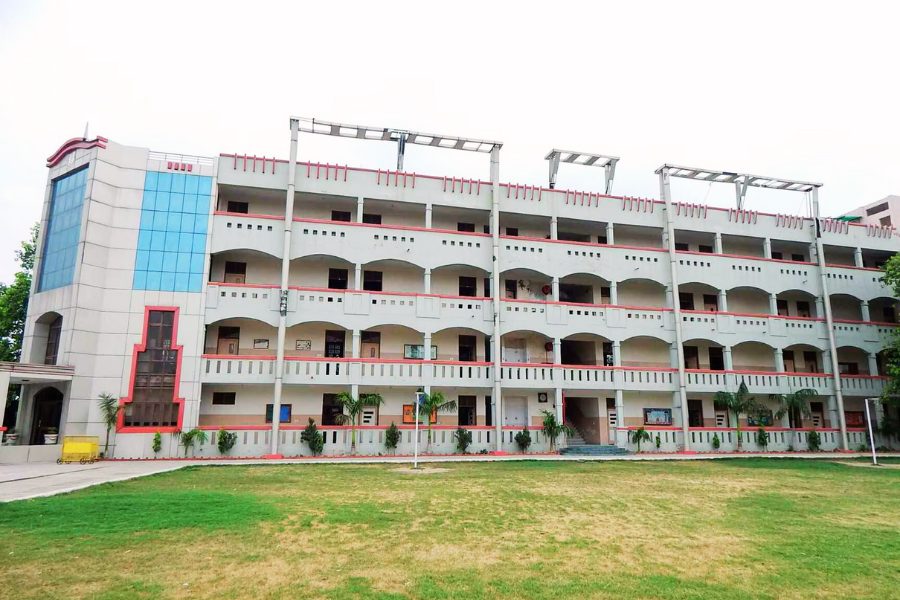Identifying the most appropriate board for your child is a hassle in itself; however one of the most crucial decisions of your child’s life. As multiple Indian boards and international curricula are competing for attention from students and their parents, the debate on CBSE vs. ICSE vs. IB vs. Cambridge remains constant.
Each board possesses attributes that bear an impact on a student’s academic journey and future opportunities. This blog makes a comprehensive boarding school curriculum comparison for parents to ensure they have a better understanding and decision-making. If you are aiming to get your child admitted into a boarding school but are confused about the best education board to opt for, then keep reading, and by the end, we hope you get your solution.
Table of Contents
- Understanding the Different Education Boards in India
- CBSE Central Board of Secondary Education
- ICSE Indian Certificate of Secondary Education
- IB or International Baccalaureate
- Cambridge (A-Level & IGCSE)
- CBSE vs. ICSE vs. IB vs. Cambridge Comparison
- Which Board is Best for Boarding Schools?
- The Takeaway:
- FAQs:
Understanding the Different Education Boards in India
To discuss the competing factors of CBSE vs ICSE vs IB vs Cambridge board thoroughly, it is important to understand each of them individually.
CBSE Central Board of Secondary Education
CBSE is one of the most opted boards in India and is highly popular among students and parents. It is well recognized for its structured curriculum and nationwide recognition.

Curriculum Focus:
Mathematics, Science, Humanities, and practical applications.
Ideal For:
Students who are preparing for competitive exams like UPSC, JEE, and NEET.
Advantages:
- Facilitates education for students who frequently relocate.
- Emphasis on conceptual clarity and application-based learning.
Challenges:
It does not provide full disclosure to international learning methodologies.
ICSE Indian Certificate of Secondary Education
The ICSE syllabus is detailed and provides students with a robust foundation in language, arts, and science.

Perfect For:
Students with an interest in literature, the humanities, and critical thinking.
Benefits:
- Extensive curriculum with a solid theoretical foundation.
- Science, the arts, and commerce are all given equal weight.
- Proficiency in English is highly valued.
Challenges:
- An intense curriculum than that of the CBSE.
- Transfers are challenging because it is less standardized across states.
IB or International Baccalaureate
The IB curriculum is known for its research-driven methodology and adheres to a global education framework.

Curriculum Focus:
Research-based education, autonomous learning, and critical thinking.
Perfect For:
Students aspiring to attend foreign universities.
Benefits:
- Globally recognized inquiry-based learning.
- Flexibility in selecting a subject.
- Encourage involvement in extracurricular activities.
Challenges:
- Comparatively expensive than other national boards.
- Requires students to have strong research and academic abilities.
Cambridge (A-Level & IGCSE)
Another international education board that provides a wider perspective and flexible subject options is the Cambridge curriculum.

Curriculum Emphasis:
Application-based learning, logical reasoning, and problem-solving.
Ideal For:
Students seeking a structured evaluation system in an international setting.
Benefits:
- Widely recognized in academic institutions.
- Curriculum that is adaptable and offers a variety of subjects.
- A focus on logical and analytical reasoning.
Challenges:
- Higher tuition fees and examination costs.
- Required self-discipline and independent learning skills.
Each school has its unique quality in terms of cost, academic opportunities & exposure. However, parents often end up debating CBSE vs. ICSE vs. IB vs. Cambridge. This can be due to many reasons, such as misinformation, incomplete research, suggestions from people, or others. Eventually, nothing results in ideal decision-making, and maybe this is the reason why most parents regret not choosing the right boarding school boards.
CBSE vs. ICSE vs. IB vs. Cambridge Comparison
Selecting the right boarding school curriculum depends on multiple factors, which also include syllabus structure, assessment methods, and future prospects.
| Feature | CBSE | ICSE | IB | Cambridge |
| Syllabus | Structured & application-based | In-depth & theoretical | Research & concept-based | Logical & analytical |
| Difficulty Level | Moderate | Extensive | Challenging | Flexible |
| Examination Pattern | Objective & subjective | Theory-based with practicals | Research & coursework | Modular assessments |
| Higher Studies Suitability | Indian universities, competitive exams | Balanced for Indian & foreign studies | Best for international universities | Ideal for global education |
| Best For | Engineering and medical aspirants | Students excelling in humanities & sciences | Globally oriented students | Flexible, international approach |
Does this comparison help you enough to identify which board is best for you? If you are still skeptical about picking the right board, check out the boarding schools in India to find the best boards and boarding schools for your child. Let’s take an overview of what we have discussed on CBSE vs. ICSE vs. IB vs. Cambridge.
Which Board is Best for Boarding Schools?
Board is not the only factor that defines the idealised personality of a student. However, career aspirations, learning preferences, and global recognition are certain facets that can help you determine the right boarding school for your child.
-
CBSE Boarding Schools:
CBSE is an ideal board for students who intend to pursue their higher education in India. The exam structure promotes a healthy blend of theoretical and practical knowledge. These CBSE boarding schools prepare students for various national-level examinations, making them preferred candidates among aspirants of competitive examinations.
- Boarding Schools for ICSE:
Students who prefer a comprehensive curriculum that prioritizes subject depth, language proficiency, and analytical skills would do better with ICSE. Although ICSE and CBSE are frequently compared, ICSE is especially advantageous for students seeking a solid foundation in literature, commerce, or the humanities.
-
IB Boarding Schools:
If you wish to study abroad, nothing else really compares with the IB curriculum for global exposure. Its focus on research, experiential learning, and interdisciplinary studies attracts those looking for an internationally recognized education system.
-
Cambridge Boarding Schools:
Students who prefer a flexible, varied subject selection and a hands-on learning approach are the right group of students for the Cambridge curriculum. Students who want to attend international universities, especially those in the US, UK, and Canada, will find it ideal.
Likewise, each board of boarding school sets different bars for students, depending on the type of exposure they are expecting in life and career. However, this constant hassle of CBSE vs. ICSE vs. IB vs. Cambridge can end for students and their parents by having a Boarding school curriculum comparison.
The Takeaway:
Selecting the best board and boarding school for your child is about more than just curriculum; it’s about influencing their future. Every board—CBSE, ICSE, IB, and Cambridge—has special advantages and is made to accommodate various learning preferences and goals. But it’s not just the board that determines a student’s success; it’s also the environment, education, and general growth they receive.
We at Boarding Schools of India are aware that learning is more than just using textbooks. In order to ensure that every child finds a school that supports their academic objectives and overall development, we offer parents and students information about the top boarding schools in India. Explore our filtered list of top boarding schools, curated by our expert. Let’s take the first step towards a brighter, dynamic future for your child.
FAQs:
Although both are globally recognized, IB promotes inquiry-based learning with a more flexible approach, emphasizing research, analysis, and holistic development, while Cambridge follows a structured syllabus with external assessments. Because of their global curricula, international universities generally accept the IB and Cambridge boards. However, with more study time and standardized assessments, students in the CBSE and ICSE can also pursue studies abroad. Because of its simplified curriculum, CBSE is frequently chosen for competitive exams in India, but ICSE provides a deeper comprehension of subjects that can help students in higher education, especially in the humanities and literature. Cambridge and IB are well-known throughout the world and are frequently accepted by prestigious universities. In addition to being valued internationally with additional credentials, CBSE and ICSE are mainly recognized in India. How does the Cambridge curriculum differ from IB?
Which board is ideal for students planning to study abroad?
Is CBSE better than ICSE for higher education in India?
Which board is more recognized globally?







